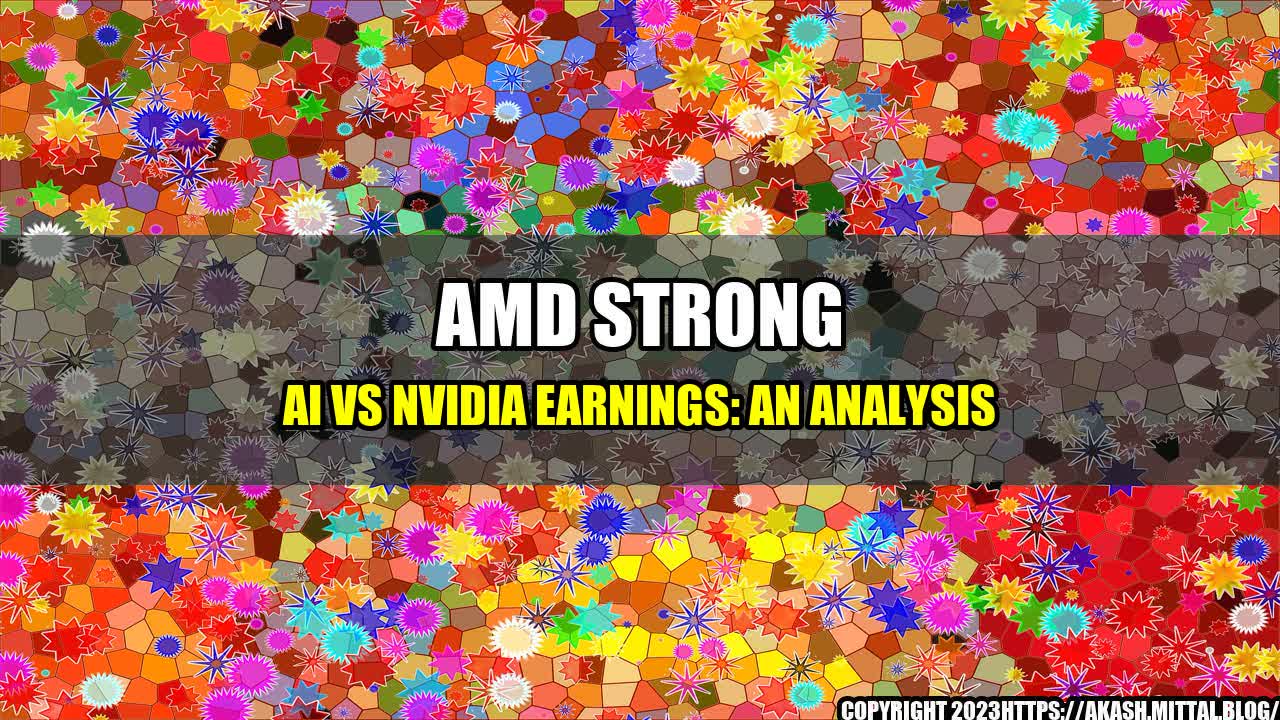

AMD and Nvidia are two of the biggest players in the world of graphics processing units (GPUs) and central processing units (CPUs) — two of the fundamental components that power today's modern computers. While historically, these two companies have been neck and neck in terms of market share, a new race has emerged that could prove to be the deciding factor in who comes out on top: the race to develop strong artificial intelligence (AI).
Recently, Nvidia released its Q1 2021 earnings report, which revealed that the company earned $3.08 billion in revenue — a 61% increase from the previous year. This growth was largely due to the increased demand for Nvidia's GPUs, which are used in a variety of industries, including gaming, data centers, and AI.
Meanwhile, AMD has also been making significant strides in the AI space. The company recently announced that it plans to acquire Xilinx, a leader in high-performance computing, with the goal of integrating its adaptive computing technologies into AMD's own portfolio of processors and GPUs.
But what exactly is strong AI, and why is it so important? At its core, strong AI refers to a machine's ability to think and reason like a human being — in other words, to exhibit true intelligence. While current AI technologies are still in their infancy, researchers are working hard to develop machines that can learn, think, and create just like humans can.
The potential applications of strong AI are virtually limitless. From revolutionizing healthcare to transforming transportation, strong AI has the power to change the world as we know it. However, the race to develop this technology is not without its challenges. One of the biggest obstacles is the need for highly capable hardware, including GPUs and CPUs that can handle the intense computational demands of AI.
If you're wondering just how big the AI market really is, consider this: according to research firm Global Market Insights, the AI industry is predicted to be worth over $390 billion by 2025. This growth will be driven by a variety of factors, including increasing demand for automation, rising investment in research and development, and the proliferation of big data.
But it's not just the market size that's impressive — it's the speed at which the industry is growing. Consider this: between 2015 and 2019, investments in AI startups grew at a CAGR of 28.5%, according to Venture Scanner.
Furthermore, the technologies that underpin strong AI — including machine learning, natural language processing, and computer vision — are advancing at an astonishing rate. Machine learning, for example, has been a major driver of the AI industry in recent years, and for good reason: it enables machines to learn from data and improve their own performance over time.
So, what can we learn from this showdown between two tech giants? Here are three key takeaways:
Ultimately, the showdown between AMD and Nvidia is just one small piece of a much larger puzzle. As the AI industry continues to evolve and grow, we can expect to see new players enter the market, new technologies emerge, and new opportunities arise. But one thing is certain: the future of technology is here, and it's more exciting — and more challenging — than ever before.
https://seekingalpha.com/article/4426653-nvidia-corporations-nvda-ceo-jensen-huang-on-q1-2021-results-earnings-call-transcript
https://www.globenewswire.com/news-release/2021/05/04/2222000/0/en/The-Artificial-Intelligence-Market-to-skyrocket-to-390-9-billion-by-2025.html
https://www.prnewswire.com/news-releases/global-artificial-intelligence-ai-in-startup-ecosystem-2020---investments-founders-trends-301092156.html
AMD, Nvidia, strong AI, GPUs, CPUs, Q1 2021 earnings, Xilinx, AI startups, machine learning, natural language processing, computer vision
#AMD #Nvidia #strongAI #GPUs #CPUs #Q12021earnings #Xilinx #AIstartups #machinelearning #naturallanguageprocessing #computervision
Technology, AI, Hardware
Curated by Team Akash.Mittal.Blog
Share on Twitter Share on LinkedIn